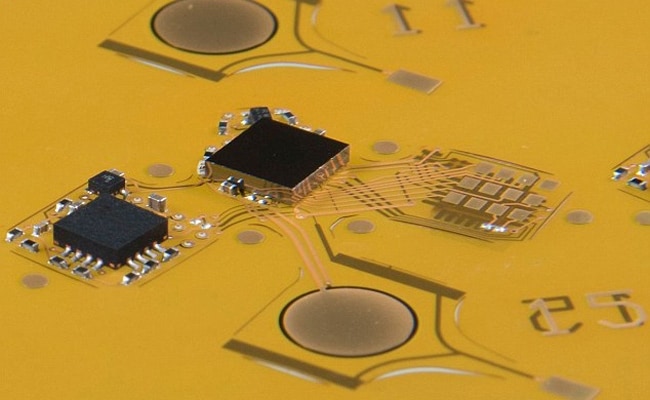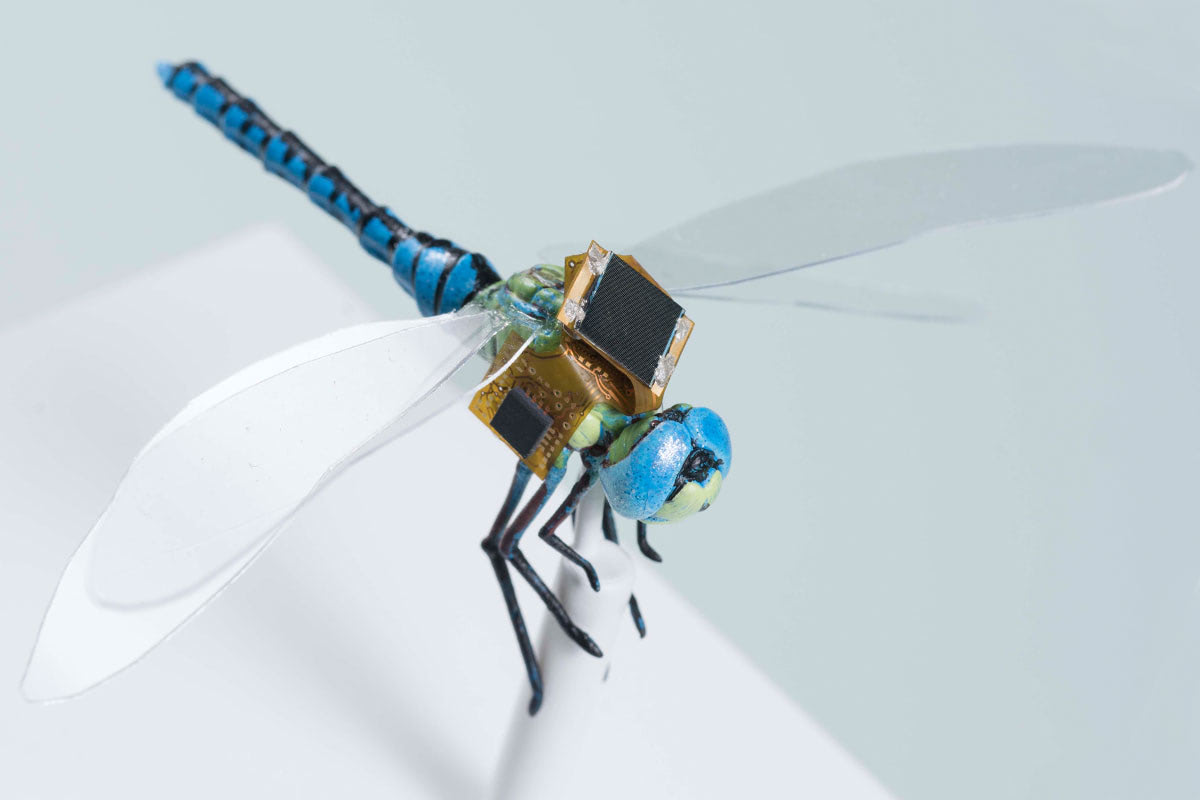In the episode ‘Hated in the Nation’ from British television anthology Black Mirror, a private tech company unleashes a group of robotic honeybees in response to the extinction of real honeybees. It wouldn’t been glorifying in any way, if the show hadn’t turned to a darker side of these drone insects: besides from transferring pollen between flowers and plants to restore ecological imbalance, these robobees set out to kill people. Fact is, this story has nothing to do with robotic killerbees. But what if we told you that a biomedical solutions company is developing a system for insects to wear, allowing engineers to steer them remotely?

A team effort from the Charles Stark Draper Laboratory and the Howard Hughes Medical Institute (HHMI) developed the technology to guide the flightpath of dragonflies to deliver payloads, conduct reconnaissance and even aid pollination. Worn like a tiny backpack wired directly into their brain, the system sends guidance commands to the insect's “steering” neurons inside its nerve cord, rather than hijacking all muscle control. The researchers are applying techniques in synthetic biology to make these “steering” neurons sensitive to light by altering genes similar to those naturally found in the eye. This allows them to place "optrodes" into the nervous system and use flashes of light in order to guide their movements.
At the moment, the program lead researcher stated they have developed a first-gen prototype, but haven’t actually tested it yet. In theory, the system could be tailored for other insects too, including honeybees. However, cyborg insects are not a new thing. We have recently seen hybrid cockroach robots and bionic beetles, to variable succes. Perhaps one day we will control a human with a technology like this. For now, let's just hope this only happens in another Black Mirror episode.
Source: Charles Stark Draper Laboratory

Share your thoughts and join the technology debate!
Be the first to comment